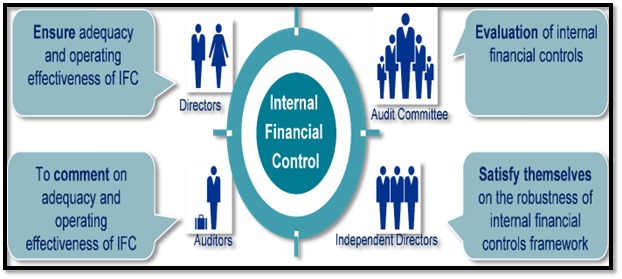In today’s increasingly complex business environment, ensuring financial integrity is more important than ever. Whether you’re a startup, a growing mid-size company, or an established enterprise, robust internal financial controls (IFCs) are essential for safeguarding assets, maintaining accurate financial reporting, and ensuring compliance with laws and regulations.
What Are Internal Financial Controls?
Internal Financial Controls refer to the processes, procedures, and policies put in place to manage financial risks and ensure the accuracy and reliability of a company’s financial statements. These controls are designed to:
- Prevent fraud and errors
- Protect assets
- Ensure operational efficiency
- Support compliance with legal and regulatory requirements
Effective IFCs span a wide range of activities — from budgeting and auditing to authorization procedures and segregation of duties.
Key Components of Internal Financial Controls
- Segregation of Duties (SoD): No single employee should have control over all aspects of a financial transaction. Dividing responsibilities helps prevent errors and reduces the risk of fraud.
- Authorization Controls: Only authorized individuals should be able to approve transactions, such as expenditures or changes in financial data.
- Reconciliations: Regular reconciliation of bank accounts, ledgers, and other records ensures accuracy and helps catch discrepancies early.
- Audit Trails: Clear records of all transactions and financial activities provide transparency and traceability, essential for audits and reviews.
- Physical Controls: Safeguarding cash, inventory, and assets through locks, access restrictions, and surveillance.
- IT Controls: Protecting financial data from unauthorized access or cyber threats through secure systems, access controls, and regular backups.
Why Internal Financial Controls Matter
- Fraud Prevention: Controls reduce the opportunity for internal fraud by adding checks and balances to financial processes.
- Accuracy in Financial Reporting: Accurate financial data is crucial for decision-making and investor confidence.
- Regulatory Compliance: For publicly traded and regulated entities, strong IFCs are often a legal requirement (e.g., SOX compliance in the U.S.).
- Operational Efficiency: Streamlined processes and clear accountability enhance productivity and resource use.
Implementing Effective Internal Financial Controls
- Conduct a Risk Assessment: Identify areas of vulnerability within your financial systems and processes.
- Develop Clear Policies: Document policies and procedures that govern financial transactions and controls.
- Train Employees: Ensure all relevant staff understand their roles and responsibilities within the control environment.
- Leverage Technology: Use accounting and ERP systems that support automated controls and reporting.
- Monitor and Review: Regularly audit internal controls and adjust them as the business evolves or new risks emerge.
Final Thoughts
Internal Financial Controls are not just a compliance checkbox—they are a fundamental aspect of sound financial management. By proactively establishing and maintaining effective controls, organizations can not only reduce risk but also enhance transparency, trust, and long-term performance.

